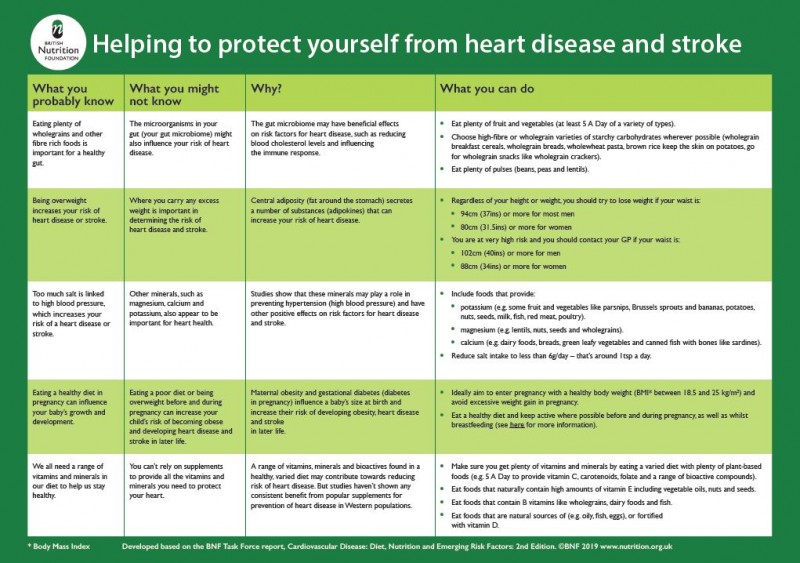
There are many ways to prevent diseases. Some of these interventions focus on early detection of a disease. Others include better sanitation and clean water. Also, many diseases can often be treated early. Policies can help improve access to care and provide emergency power in the event of an epidemic. No matter what method is used, prevention aims to reduce the burden of disease and prevent it from happening.
You can avoid most diseases by changing your lifestyle. A healthy lifestyle can prevent heart disease and cancer. Even though you can't totally quit smoking or become more active you can reduce the likelihood of these conditions. It is important to have a healthy lifestyle and get enough exercise. While it may be difficult to change your lifestyle, it is possible to live a healthier life.

Preventative Medicine is taking action before a condition is discovered. It is the study of a disease's natural history and intervention to reduce its prevalence. Today's epidemiological knowledge allows for prevention and control of the transmission and progression of infectious and degenerative diseases. Public health education and prevention involves the dissemination scientific knowledge as well as normative recommendations to modify habits. This effort is more extensive than ever in order to keep people healthy.
There are many ways to prevent diseases. These measures are called "interventions" which can be divided into secondary, primary, and tertiary. Rehabilitation programs are designed to help injured workers return back to work and allow them to retrain in a new field. Vocational rehabilitation programs are similar. They help people with disabilities regain their ability to work safely. There are many other methods to prevent illness. These methods are both affordable and effective, and they can significantly improve your health.
Public health policy should be focused on the prevention of environmental and disease factors. Many countries have developed a system of health care that promotes healthy living and prevents diseases. It is possible to successfully implement a population-based screening system by investing in a high quality primary care program. The goal of the screening program is to improve health, and prevent disease. This approach can also be called "disease prevention". Prevention of diseases and the Prevention of Environmental Hazards

To prevent diseases, we need a new world view and deepening knowledge. A person's ability and willingness to lead an active, healthy lifestyle is what health means. Health promotion's goal is to improve people's lives and prevent them from becoming sick. Many actions taken to promote health are also directed towards preventing disease.
FAQ
What's a good workout routine for daily?
To stay fit, you need to exercise regularly. It doesn't make a difference what kind of activity you choose. As long as you do it often, it will be beneficial. The most important thing is consistency. You must be consistent if you are to see results.
Start by doing small amounts of daily physical activity (like walking). Start by walking for a few minutes every day. Gradually increase your time exercising to 30 minutes per week. This could be running, biking, swimming or weight training.
Try to make sure you exercise on all days of the week. Don't skip any sessions unless you have a valid reason for not attending.
You should wear the appropriate clothing and footwear if you are exercising outdoors. You should also consider the weather conditions that could affect your ability exercise safely.
When you exercise, drink plenty of fluids. Drinking alcohol at this time can lead to dehydration. Avoid caffeinated drinks, such as coffee, tea and cola. These drinks may give you energy but also dehydrate your body.
After your first exercise, you may feel tired. If you stick with your training program, you'll feel more awake and alert.
How to Build Muscles Fast
Eating healthy foods and lifting weights regularly is the best way to build muscle fast.
Mornings are the best time to workout.
Exercises such as push-ups and bench presses are good options.
Try different weight training routines, and don't forget to drink plenty of water throughout the day.
How To Get Rid Of Belly Fat Fast?
There are several ways to reduce belly fat fast. One option is to eat less calories and drink more water.
Another way is to increase your metabolism by participating in activities such as running and swimming.
Avoid sitting down if your goal is to lose belly fat quickly. Stand up more often throughout the day. This will help reduce calories.
If you've tried all the methods and are still struggling with belly fat, there's another option.
You will need a belt to do this. The belt fits around your waist and is tightened when you sit down.
It will cause you to feel uneasy and make it difficult for you to move. This forces you to burn more calories and reduces your belly fat.
Is it true, that too much protein can cause kidney stones?
Protein is essential for healthy bones and tissue. Over-consuming protein can result in calcium being excreted through the kidneys. In turn, this can result in kidney stones.
Not everyone who eats more than 2g of protein per kilogram (2.2 lbs) of bodyweight will get kidney stones. High amounts of protein can be consumed by some people without causing kidney stones.
By being careful with your sodium intake, you can prevent kidney stones. Sodium regulates the body's water balance. Too much sodium can lead to kidney stones.
If you have kidney stones, you can reduce your intake of protein. About half of adults' daily caloric intake is made up of protein. If you cut back on protein, you'll likely lose weight.
If you do decide to eat more protein, don't go overboard. You should aim to consume less than 20% of your total calories from protein.
How many calories should you consume each day?
This can vary from person to person. On average, 2000 to 2500 calories are consumed per day. It's important to assess your life style, gender, age and height in order to determine how much calories you need.
Statistics
- Are You One of the 20% of Guys (mh.co.za)
- According to the American Heart Association, blood pressure should be checked at least once every two years, beginning at age 20. (my.clevelandclinic.org)
- 10 pounds in a month is likely during a lean bulking phase, especially for beginners. (muscleandstrength.com)
- Candidates and applicants must pass all four tests at 70% (minimum level) to graduate from Basic Deputy U.S. Marshal (BDUSM) Training. (usmarshals.gov)
- The PRS enabled risk stratification for overall prostate cancer and lethal disease with a four-fold difference between men in the highest and lowest quartiles (HR, 4.32; 95% confidence interval [CI], 3.16-5.89). (pubmed.ncbi.nlm.nih.gov)
External Links
How To
How can I burn fat and exercise?
Exercise reduces calories by increasing metabolism, and oxygen consumption.
If you exercise with moderate intensity, you can safely lose weight.
These are the top tips for burning fat while you exercise.
-
Do cardio exercises such as walking, swimming, jogging, cycling, running, or elliptical training.
-
You can exercise for 30 mins three times per week.
-
If you want to lose more weight, add strength training to your routine.
-
Avoid intense workouts. It is possible to build muscle without destroying muscle tissue.
-
Drink plenty of water during exercise. Water is essential for flushing out toxins and keeping your body hydrated.
-
Choose low-fat protein shakes after working out. Protein shakes help repair muscles and boosts energy.
-
Smaller meals are better for you.
-
Don't skip breakfast! You can feel tired and slow if you skip breakfast.
-
Take care to your mental well-being. Stressful situations can slow your metabolism.
-
Keep a positive attitude. Studies show that overweight people are more likely to be obese than those who perceive themselves as attractive.
-
Get enough sleep. Lack of sleep makes it harder to burn fat.
-
Always be active. Keep moving every hour.
-
Maintain a healthy diet. Eat right to feel satisfied and full for longer.
-
Find relaxation techniques. Your body won't release stress hormones that cause muscle tissue destruction if you have a tense mind.
A balanced diet contains all necessary nutrients for growth and development.
Instead of eating three large meals a day, eat six smaller meals every day. This gives your body more time to digest the food you eat.
To maintain strong bones, you need to consume 500 mg of calcium each day. Calcium is found in dairy products like yogurt, fortified milk beverages, orange juices, cereals and bread.
Calcium can be found in leafy green veggies, beans, tofu and nuts as well as seeds, nuts and cheese.
Your body needs vitamin D to absorb calcium. Vitamin D is found in certain fortified foods, such as egg yolk and fatty fish.
Vitamin E is essential for skin health. It can be found as a vegetable oil, wheat germ, peanuts or almonds.
Your body requires zinc for normal immune function and wound healing. Zinc is found in oysters, legumes, meats, whole grains, and seafood.
Zinc deficiencies can lead to fatigue, decreased appetite, depression, and reduced immunity.
Eating too much sugar causes insulin resistance, which increases blood glucose levels. Insulin resistance leads to weight gain.
Insulin resistance is caused by high blood levels of free-radicals. Free radicals are molecules with unpaired electrons that damage cell membranes and other parts of the body.
Free radicals come mainly from food additives, pesticides, herbicides, preservatives, smoking, air pollution, radiation, chemicals in cosmetics, lotions, and household cleaning supplies.
Free radical damage can cause cancer, heart disease and diabetes, as well as arthritis, asthma, and other diseases.
Eating a well-balanced diet with antioxidants is the best way to prevent free radical damage. Antioxidants protect against oxidative damage.
Vitamin C can be found in citrus fruits. Beta carotene can be found in carrots. Sweet potatoes. Tomatoes. Carrots. Sweet potatoes. Spinach. Broccoli. Cantaloupe. Vitamin E is found in nuts. Olive oil, avocados.
Additional antioxidant nutrients include selenium and copper, manganese and zinc.
Selenium is known to protect cells from the oxidative damage that free radicals can cause. Selenium can be found in Brazil nuts and liver, kidneys, liver, kidneys, shrimp, cod, turkey and lamb as well as chicken.
Copper protects your eyes, brain, eyes and red blood cell. Copper can be found in meat, shellfish, meat, and organ meats.
Manganese, an essential component of bone strength, is crucial. Manganese can also be found in oatmeal, brown rice, spinach and bananas.
Zinc is essential for normal growth, reproduction, wound healing, and average growth. Zn can also be found in white fish, lean cuts of meat, poultry, and eggs.